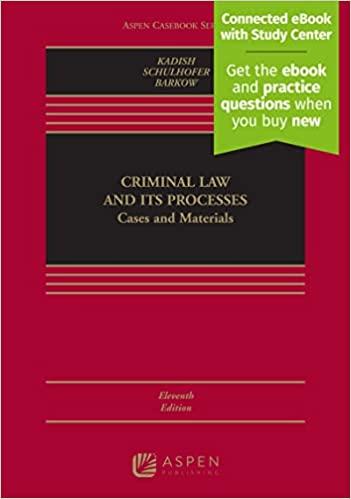Answered step by step
Verified Expert Solution
Question
1 Approved Answer
Summarize the court ruling and explain the reason for the ruling.. If it be assumed, contrary to what we think the evidence shows, that Zehmer
- Summarize the court ruling and explain the reason for the ruling..
- If it be assumed, contrary to what we think the evidence shows, that Zehmer was jesting about selling his farm to Lucy and that the transaction was intended by him to be a joke, nevertheless the evidence shows that Lucy did not so understand it but considered it to be a serious business transaction and the contract to be binding on the Zehmers as well as on himself. The very next day he arranged with his brother to put up half the money and take a half interest in the land. The day after that he employed an attorney to examine the title. The next night, Tuesday, he was back at Zehmer's place and there Zehmer told him for the first time, Lucy said, that he wasn't going to sell, and he told Zehmer, "You know you sold that place fair and square." After receiving the report from his attorney that the title was good, he wrote to Zehmer that he was ready to close the deal. Not only did Lucy actually believe, but the evidence shows he was warranted in believing, that the contract represented a serious business transaction and a good faith sale and purchase of the farm. In the field of contracts, as generally elsewhere, "We must look to the outward expression of a person as manifesting his intention rather than to his secret and unexpressed intention. 'The law imputes to a person an intention corresponding to the reasonable meaning of his words and acts. At no time prior to the execution of the contract had Page 348 Zehmer indicated to Lucy by word or act that he was not in earnest about selling the farm. They had argued about it and discussed its terms, as Zehmer admitted, for a long time. Lucy testified that if there was any jesting it was about paying $50,000 that night. The contract and the evidence show that he was not expected to pay the money that night. Zehmer said that after the writing was signed he laid it down on the counter in front of Lucy. Lucy said Zehmer handed it to him. In any event there had been what appeared to be a good faith offer and a good faith acceptance, followed by the execution and apparent delivery of a written contract. Both said that Lucy put the writing in his pocket and then offered Zehmer $5 to seal the bargain. Not until then, even under the defendants' evidence, was anything said or done to indicate that the matter was a joke. Both of the Zehmers testified that when Zehmer asked his wife to sign he whispered that it was a joke so Lucy wouldn't hear and that it was not intended that he should hear. The mental assent of the parties is not requisite for the formation of a contract. If the words or other acts of one of the parties have but one reasonable meaning, his undisclosed intention is immaterial except when an unreasonable meaning which he attaches to his manifestations is known to the other party. The law, therefore, judges of an agreement between two persons exclusively from those expressions of their intentions which are communicated between them. An agreement or mutual assent is of course essential to a valid contract but the law imputes to a person an intention corresponding to the reasonable meaning of his words and acts. If his words and acts, judged by a reasonable standard, manifest an intention to agree, it is immaterial what may be the real but unexpressed state of his mind. So a person cannot set up that he was merely jesting when his conduct and words would warrant a reasonable person in believing that he intended a real agreement.... Whether the writing signed by the defendants and now sought to be enforced by the complainants was the result of a serious offer by Lucy and a serious acceptance by the defendants, or was a serious offer by Lucy and an acceptance in secret jest by the defendants, in either event it constituted a binding contract of sale between the parties. Defendants contend further, however, that even though a contract was made, equity should decline to enforce it under the circumstances. These circumstances have been set forth in detail above. They disclose some drinking by the two parties but not to an extent that they were unable to understand fully what they were doing. There was no fraud, no misrepresentation, no sharp practice and no dealing between unequal parties. The farm had been bought for $11,000 and was assessed for taxation at $6,300. The purchase price was $50,000. Zehmer admitted that it was a good price. There is in fact present in this case none of the grounds usually urged against specific performancev
Step by Step Solution
There are 3 Steps involved in it
Step: 1

Get Instant Access to Expert-Tailored Solutions
See step-by-step solutions with expert insights and AI powered tools for academic success
Step: 2

Step: 3

Ace Your Homework with AI
Get the answers you need in no time with our AI-driven, step-by-step assistance
Get Started


